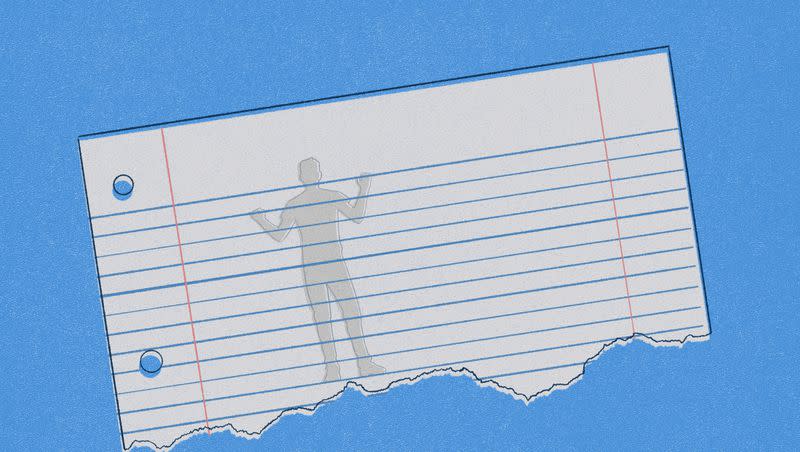Perspective: How health privacy laws are hurting college students and their families

In the midst of all our discussions about what is causing the youth mental health crisis, it might be worth examining the public policies that are making it worse. One such policy is the Family Educational Rights and Privacy Act, or at least colleges’ interpretation of that law.
A recent article in The New York Times documented the story of Rachael Shaw-Rosenbaum, a first-year student at Yale who committed suicide in 2021. According to her family, Shaw-Rosenbaum knew she had mental health issues, but feared revealing them to the university because of its policy that students who are suicidal may not remain on campus. And if they leave, they must reapply to the school, writing an essay and submitting letters of recommendation. As it turns out she was not alone. And a number of former students formed a group, Elis for Rachael, that filed a class-action suit against Yale accusing the university of discriminating against students with disabilities.
In addition to forcing students to reapply, the school also cut off students’ health insurance almost immediately and offered no accommodations for doing work from home. As a result of the lawsuit, Yale has changed some of these policies. “Yale was a case where they were being very strict, and people would have to apply multiple times,” Marcus Hotaling, president of the Association for University and College Counseling Center Directors, told the Times.
But why? What was causing Yale to adopt a policy that seems on its surface so heartless?
Not surprisingly, it was financial liability. As Hotaling explained, colleges could be held responsible if students harm themselves while on campus and the college knew that they were in some kind of danger. Lawsuits by parents over their children’s suicides are not uncommon. From a soccer goalie at Stanford to a basketball star at Canisius College in Buffalo, parents have accused schools of actions that have led to mental health problems, including bullying by coaches and hazing by other students. They have also claimed that schools have provided inadequate counseling services to students they knew were suffering.
Related
But some of the biggest lawsuits have come from parents who have been kept in the dark about their children’s conditions. In 2019, Kathy Schussler and her husband, Jeffrey Schussler, sued Iowa State over their son Dane’s suicide. Dane had gone to seek counseling over a traumatic incident and mentioned his suicidal thoughts to the counselor. But his parents never knew. As the Des Moines Register noted, Schussler “said she would’ve taken him seriously if she knew he had suicidal thoughts — but she never knew to ask. ... According to the student counseling service’s professional code of ethics, their staff can’t release a client’s information without that person’s written permission.”
The most famous of these cases was that of Elizabeth Shin, an MIT student who took her own life in 2020. Her parents, who had no idea that anything was wrong, filed a $27 million wrongful death lawsuit against the school, which was eventually settled. Because these students are technically adults, FERPA prevents schools from releasing any medical information to their parents. (Many schools are now invoking FERPA as a reason not to tell parents of younger children about children adopting a different gender at school.)
But the result of this policy is that the people who can usually be of most help to a person, who care about them more than anyone — their family — are in the dark when their children are at their most vulnerable. Eighteen-year-olds who are suicidal are not in the best position to be making decisions for themselves about whether it’s safe to remain on campus or whether a different environment might be more helpful. They might not even realize the cause of their problems. They won’t quit a team even if the coach is inflicting emotional distress or leave a fraternity if they are being bullied. They won’t drop a class even if it means that their failure is making things worse.
To be sure, parents don’t always know what’s best for their young adult children, and some kids go to college to escape difficult family environments. But those cases tend to be the exceptions more than the rule. And the idea that we would trust college bureaucrats to know better how to guide a vulnerable student than his or her own family is absurd. As with so many aspects of our overly litigious society, this interpretation of FERPA has produced some disturbing unintended consequences.
Are there ways around this? Perhaps students, when they enroll, can designate a family member or trusted adult to receive health information if college officials worry that they are at risk of self-harm.
Most experts seem to agree that parents’ involvement in their kids’ therapy makes it more effective. But too often adult professionals, whether they are teachers or administrators, see parents as a hindrance. Even when our children officially become adults, they still depend on their relationships with family for support. If only our legal and educational systems would recognize this.
Naomi Schaefer Riley is a senior fellow at the American Enterprise Institute, a Deseret News contributor and the author of “No Way to Treat a Child: How the Foster Care System, Family Courts, and Racial Activists Are Wrecking Young Lives,” among other books.

